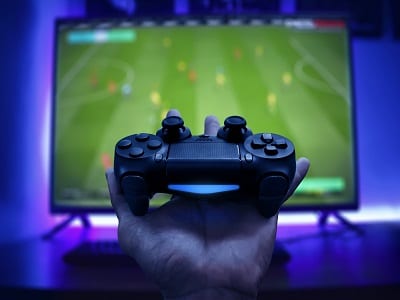Gaming addiction, also called gaming disorder, refers to the compulsive need to play video games even in the face of negative consequences. The addiction goes well beyond a hobby, causing serious problems with the gamer’s health, relationships, social life, and work or school.
In 2018, the World Health Organization (WHO) included gaming disorder in their 11th edition of the International Classification of Diseases (ICD-11). The WHO characterizes the disorder as an “impaired control” over gaming, where the activity has become the most important focus in the gamer’s life.
However, the most current edition of the Diagnostic and Statistical Manual of Mental Disorders (DSM-5) recommends further study before they classify gaming disorder as a mental disorder.
Warning Signs of Gaming Addiction
Gaming addiction is a serious behavioral disorder. It becomes a problem when gamers prioritize playing video games over all other responsibilities and their own personal well-being, including personal hygiene and health. The warning signs of addictive gaming behavior are like the signs of other addictive behaviors and may include:
- Continuously talking about, thinking about, or otherwise obsessing about gaming.
- Achieving a sense of euphoria from gaming. The need to play for increasingly longer intervals to achieve desired “high.”
- Using gaming as an escape from negative emotions or situations.
- Inability to control or stop gaming behavior despite negative consequences. Feeling anxious, depressed, or restless when not playing.
- Problems with work, school, relationships, and other responsibilities because of gaming.
- Impaired social functioning. Isolating from anyone other than fellow gamers.
- Lying about how much time is spent gaming.
- Disregard for personal health. Poor nutrition, weight loss or gain, insufficient sleep, lack of exercise. Neck, back, wrist, and other pain caused by stress on the body from excessive gaming.
According to the ICD-11, symptoms of a gaming disorder should be present for at least a year to meet diagnostic criteria.
Do You Have a Gaming Disorder?
Review the warning signs listed above and ask yourself how many apply to you. Think about the amount of time you spend gaming. Do you feel that time interferes with personal responsibilities? Has it caused problems with any important relationships? Have you stopped participating in other activities you once enjoyed, devoting more time to gaming?
Honestly assess your current health. Can you link negative issues like disrupted sleep, unhealthy eating habits, fluctuation in weight, physical pain, increased stress and anxiety, or other issues to your gaming habits?
Do you feel sad, restless, or upset when you aren’t gaming?
Have you promised yourself, or someone else, that you would limit your gaming time but were unable to keep that promise?
A small percentage of gamers have a gaming addiction. If you have identified several warning signs, it is important to be assessed by a professional to determine if you have a serious gaming problem, and if so, what treatment options are available.
Turning Point of Tampa has been offering Licensed Residential Treatment for Addiction, Eating Disorders and Dual Diagnosis in Tampa since 1987.



